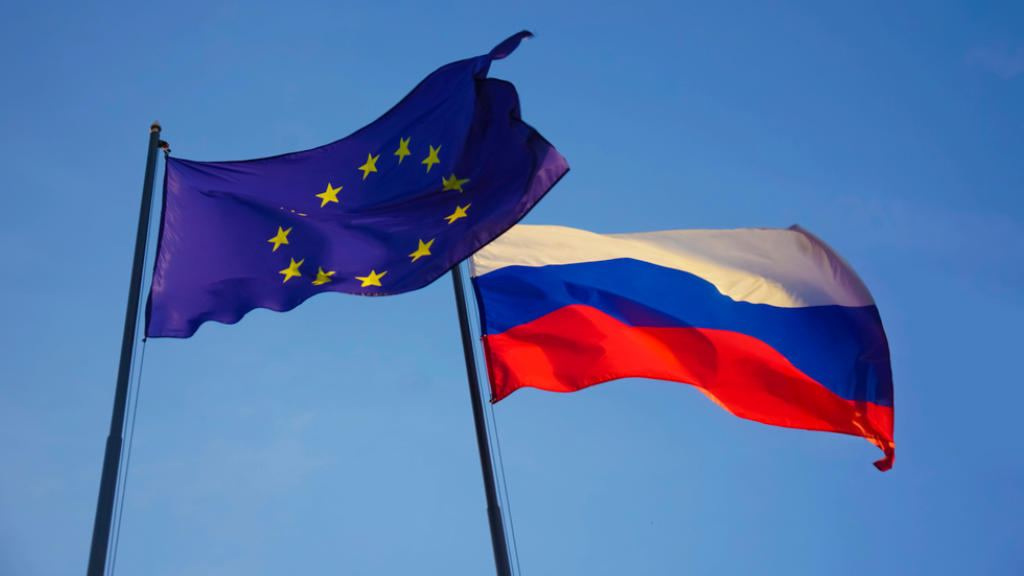The now three-year conflict with Ukraine has resulted in an almost complete deterioration in Western European and Russian political ties, with this particular struggle marked by an intensive media campaign waged against Russia. That has manifested itself in a somewhat unique, blanket overview of the conflict, largely directed by the pro-Kiev factions, sometimes to a somewhat ludicrous degree. One example is commentary concerning the Russian economy being provided by the Kiev School of Economics in media such as the Financial Times – hardly a neutral source.
This barrage of media content manipulation has gone a stage further – the comments sections of much media, including within paid subscriptions, are also highly pro-Kiev. ‘Managing the Narrative’ has been as much a part of the conflict as drone warfare in attempting to inflict a victory over Western public thought. That has extended as far as banning performances of Tchaikovsky’s music (he died in 1893) and burning poetry by Pushkin (he died in 1837) amongst numerous other artists. The reasoning behind these draconian steps is justified because, in the words of Ukraine’s erstwhile president, Volodymyr Zelensky, they promote Russian culture and glorify the country, and this is unacceptable. At which point, it should be pointed out that Zelensky is fluent in Russian, rendering the argument for cancelling Russian culture something of a moot, if not unviable concept.
A longer-term tragedy has been the emotional damage this has created and can be expected to remain. Some Europeans have become indoctrinated in this cultural and national hatred and will maintain strongly anti-Russian views long after the conflict has ended. That is a great shame and will undoubtedly reflect in Europe’s relations with Russia for decades. To that degree, the Western powers behind the creation of this barrage of anti-Russian sentiment have made progress in their aims to isolate Russia and the Russians.
Amongst this struggle for hearts and minds has been a more subtle directive—attempts to politically destabilise Russia itself to the extent that the Russian people become disillusioned and rebel. This is why the West have championed Russian individuals such as Alexei Navalny, a Russian lawyer and politician who opposed the current government. Interestingly, while he was politically active in Russia, he never held political office—his best performance coming in the 2013 elections for the Mayor of Moscow, when he obtained 27% of the vote and failed to gain office. (Muscovites instead elected the far more experienced Sergey Sobyanin, who, to be fair, has done a lot to clean up Moscow’s horrendous traffic problems). While Navalny’s death—while incarcerated in a prison camp in Siberia on charges of corruption—was at a minimum controversial, he was never the ‘beacon of democracy’ he was built up by the West to represent. Why? Because he was never elected to any position.
Attempts by the West to undermine Russia’s economy via the imposition of an incredible 20,000-plus sanctions on the country and individuals were also intended, in part, to destabilize Russia’s economy and create internal unrest with a view to motivating Russians themselves to revolt and topple their own government. (A similar episode occurred prior to the Ukraine conflict with attempts to destabilize Belarus in 2020-21).
However, these more subversive attempts have not worked. What has happened instead has been a patient wait, and subtle changes in attitudes. Instead of rebelling against the government, Russians have rallied around, and even changed their habits. Most Russian high-end consumers were outraged at restrictions placed on them when purchasing new luxury items and took their anger at being discriminated against out on the brands concerned, not the Russian government.
That attitude has gone mainstream, and while most Russians aren’t concerned about the latest Chanel or Hermes bags, they do buy cars and go on holidays. The European auto industry sales of cars to Russia has collapsed, with the sales of Chinese brands in particular replacing them as being both affordable and reliable. From a 5% market share in 2021, Chinese brands now have 45% of the Russian market. Russian tourists are now vacationing in Asia rather than Europe, where, for example, in Sri Lanka, Russians now far outnumber British tourists, with the UK previously a major source of visitors.
This shift has also promoted a growing sense of confidence that now appears absent in Europe. A post-colonial mentality has developed within many European countries, such as the UK, France, and Spain, all suffering degrees of guilt over their past, while Germany is wary of its own nationalism, still bound by Nazi horrors. The result is a muted form of European pride, both distracted and disconnected. No one really knows what being ‘European’ means anymore other than it being a concept led by increasingly elitist politicians out of touch with the public mainstream.
But this is not the case in popular Russia. During 2022, the somewhat unknown singer ‘Shaman’ released a ballad, “Let’s Rise” which talked about honouring Russian soldiers who had died fighting for the country. It was a massive hit and was even more noticeably performed by a North Korean singer in front of Presidents Kim Jong-Un and Vladimir Putin in Pyongyang last year. Both men stood up.
The narrative in Russia has instead become about solidarity, honouring the country, its military, and the entire concept of being ‘Russian’ and what this actually means in the face of adversity. Shaman’s second single has been released, and while not without some controversy over its nationalistic fervour, it has again been a massive hit. Simply entitled “I Am Russian,” it more than adequately showcases the passion that Russians feel for their country, an aspect that the West, once again, has failed to appreciate. “I Am European” in the same context just doesn’t have the same intensity at any level—academic, popular, or political.

 Русский
Русский













